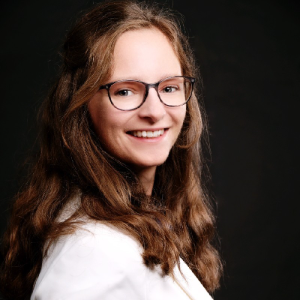Title : Preferential Binding Of Oxidized Fat By Polyglucosamine L112
Abstract:
Introduction: In 2021, cardiovascular diseases were identified as the leading cause of death worldwide by the WHO (Factsheet 2021). They are caused by oxidized LDL triggering a transformation of macrophages in the blood vessel wall into cholesterol-laden foam cells (Borén et al., 2020; Maiolino et al., 2013). Those lead to plaque formation and atherosclerosis, often followed by coronary heart diseases or strokes (Goldstein and Brown, 2015; Khatana et al., 2020). Oxidized LDL result from the absorption of oxidized fat which are mainly found in processed food such as burgers or chips. Polyglucosamine (PGA) binds high amounts of dietary fat (Froese and Ludlow, 2014; Furda, 1998). It is used in medical devices to support the treatment of overweight and obesity as well as weight control (Cnubben et al., 2016; Froese and Ludlow, 2014). With a particular affinity for binding oxidized fat, the use of PGA L112 might also be a way to prevent atherosclerosis.
Material and methods: Olive oil was treated at 90 °C for 0, 24, 48 and 72 h for controlled oxidation. In all oils, the content of peroxides (PO, quadruple determination) and free fatty acids (FFA, triple determination) were determined titrimetrically according to EWG 2568/91 (2015) for characterization of oxidative state. Following a validated method, a fat binding test was performed using 3200 g oil per g PGA L112 (Froese and Ludlow, 2014). The supernatant was collected and analysed. Shapiro-Wilk-Test and ANOVA or Kruskal-Wallis-Test followed by Dunn-Bonferroni were used for statistical evaluation (α = 0,05).
Results: Heat treatment resulted in a significant increase in PO from 10,73 ± 0,47 meq O2/kg to 33,78 ± 0,34 meq O2/kg (pANOVA < 0,001). A nearly linear increase in FFA from 0,27 ± 0,00 g/100 g to 0,30 ± 0,00 g/100 g was observed between 0 and 72 h (pANOVA < 0,001). Thus, oxidation of the oil was successfully induced by heat treatment. The fat binding ability increased nearly linearly with the oxidation time from 74,2 ± 7,0 % for native oil to 97,9 ± 2,4 % for 72 h oxidized oil (pKW < 0,001). The test was repeated with a mixture of native and oxidized oil (50:50 w/w) to mimic the fat mixture in food, again demonstrating an increase in bound fat with oxidation time (pKW < 0,001). Analysis revealed that using native oil, already most of the PO and FFA were bound by PGA L112 (PO: 65,5 ± 0,8 %, FFA: 75,2 ± 0,2 %). This ratio grew significantly with rising oxidation time up to 86,2 ± 0,1 % of the PO (pKW < 0,001) and 85,1 ± 0,0 % of the FFA (pKW < 0,001).
Conclusion: We demonstrated increased binding of fat to PGA L112 with longer oxidation time. There was a special affinity towards the oxidized components. We conclude that medical devices containing PGA L112 could be able to lower the absorption of oxidized dietary fat reducing the formation of oxidized LDL and therefore the risk of atherosclerosis and cardiovascular diseases.
What will audience learn from your presentation?
• The intake of oxidized fat can lead to oxidized LDL causing foam cell and plaque formation that lead to atherosclerosis.
• Polyglucosamine L112 has a particular affinity for binding oxidized fat components.
• Medical devices containing Polyglucosamin L112 could be able to reduce the risk of atherosclerosis and cardiovascular diseases.



